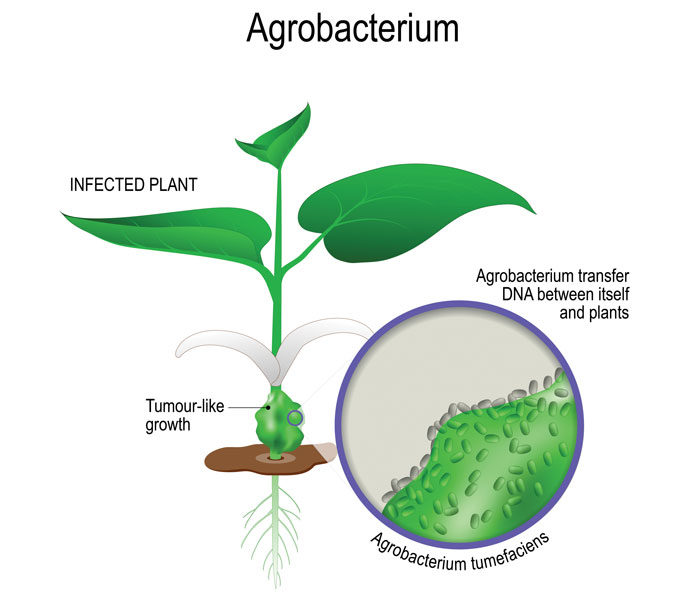No-Till Farmer
Get full access NOW to the most comprehensive, powerful and easy-to-use online resource for no-tillage practices. Just one good idea will pay for your subscription hundreds of times over.

Crown gall agrobacterium introduces new traits into commercial crop plants by depositing transfer DNA to then join with the plant's DNA.
What do crown gall disease in trees and trait-improved varieties of commercial crops have in common? The short answer: An agrobacterium found in nature that has the uncanny knack for transferring its DNA into the nucleus of a host plant in a hit-and-run fashion
No-tillers should care because Purdue University researchers have recently patented technology using mutations of that organism that could eliminate years of plant breeding work in producing trait-enhanced commercial crops.
We recently visited with Stanton Gelvin, a Purdue Umbarger Distinguished Professor of Biology, about his career in basic research and how years of laboratory work — seemingly far removed from the flashier R&D of new product introductions — has yielded a tool for gene transfer into specific crop plants without altering the treated plant’s overall genetics.
Currently, researchers use the crown gall disease agrobacterium to introduce new traits into commercial crop plants. The agrobacterium carries the transfer DNA (T-DNA) scientists have loaded into it and easily invades the target plant and deposits its T-DNA load. The load joins with the plant’s DNA, leaving a genetically modified plant with a new trait. The only problem is the agrobacterium also dumps its own DNA to newly transitioned “transgenic plant.”
Gelvin and associate Lan-Ying Lee spend years mutating the agrobacterium to significantly reduce its ability to integrate its own traits into the target plant. This saves plant breeders years of outcrossing the transgenic plant to rid it of expressing the agrobacterium’s genetics.
The work involved randomly mutating the…